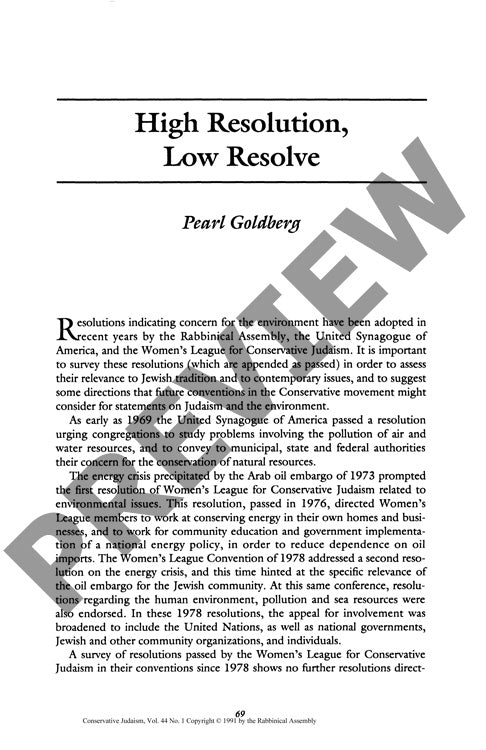High Resolution Low Resolve
Couldn't load pickup availability
Despite Judaism's rich environmental traditions, Conservative Jewish organizations produced surprisingly few environmental resolutions during a critical two-decade period of rising ecological awareness. Between 1969-1989, the movement's major bodies - the Rabbinical Assembly, United Synagogue of America, and Women's League for Conservative Judaism - passed just twelve environmental resolutions, predominantly reactive responses to media-prominent issues like the 1973 Arab oil embargo. Qualitative content analysis reveals that while some resolutions successfully integrated halakhic principles such as bal tash-hit (prohibition against waste) and tikkun olam (repairing the world), many missed opportunities to ground environmental activism in Jewish textual sources. Five resolutions addressed energy concerns, while seven focused on environmental protection and pollution. The Rabbinical Assembly's 1978 energy resolution stands out as an exemplar, effectively bridging Jewish law with contemporary environmental challenges. Analysis criteria included quantity, quality, and effectiveness of the resolution texts examined chronologically. To strengthen future environmental advocacy, Conservative Judaism would benefit from more explicit connections to Jewish sources and systematic study programs aimed at developing "Jewishly informed conservationists" within the movement.

More Information
-
Physical Description
-
Publication Information
Published 1991
ISBN
-
Publication Credits
Pearl Goldberg

